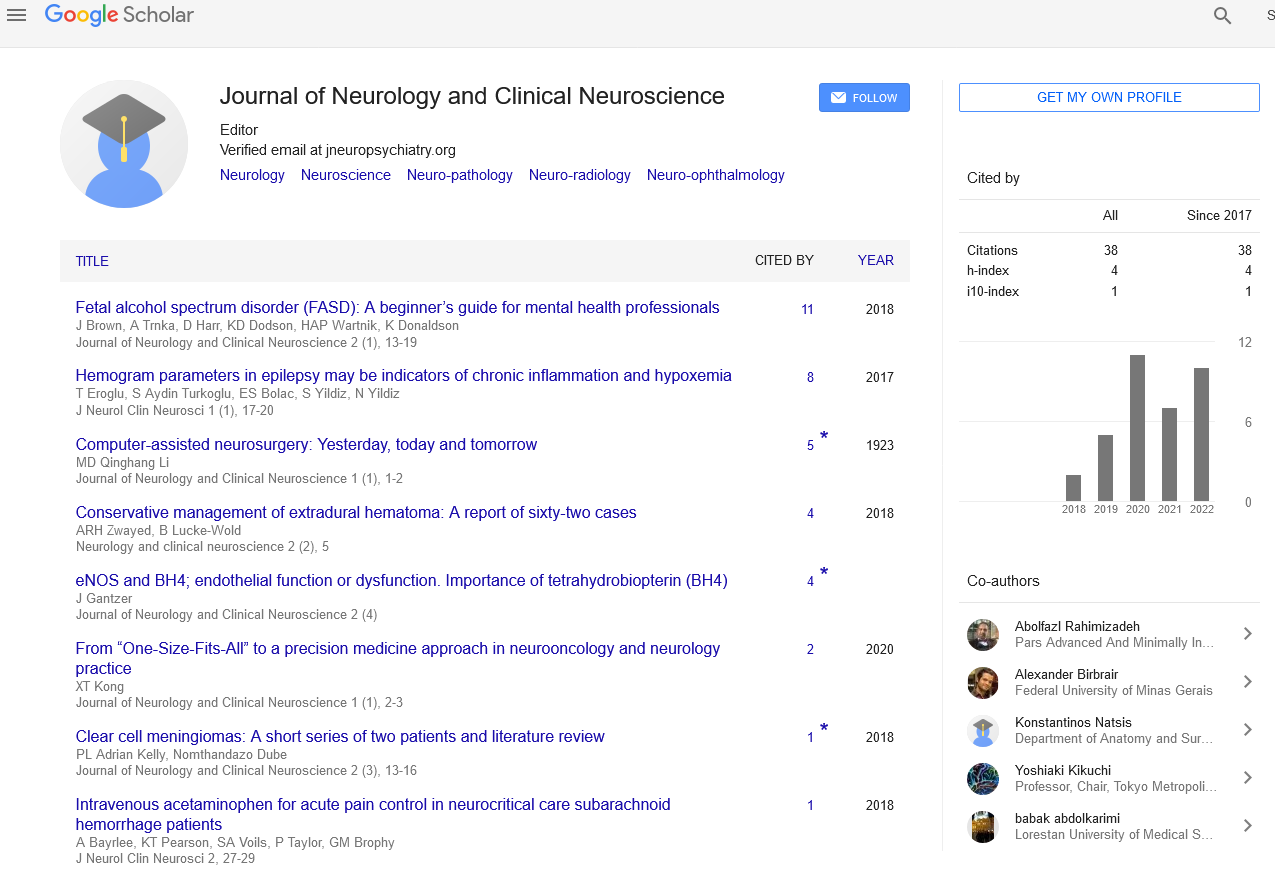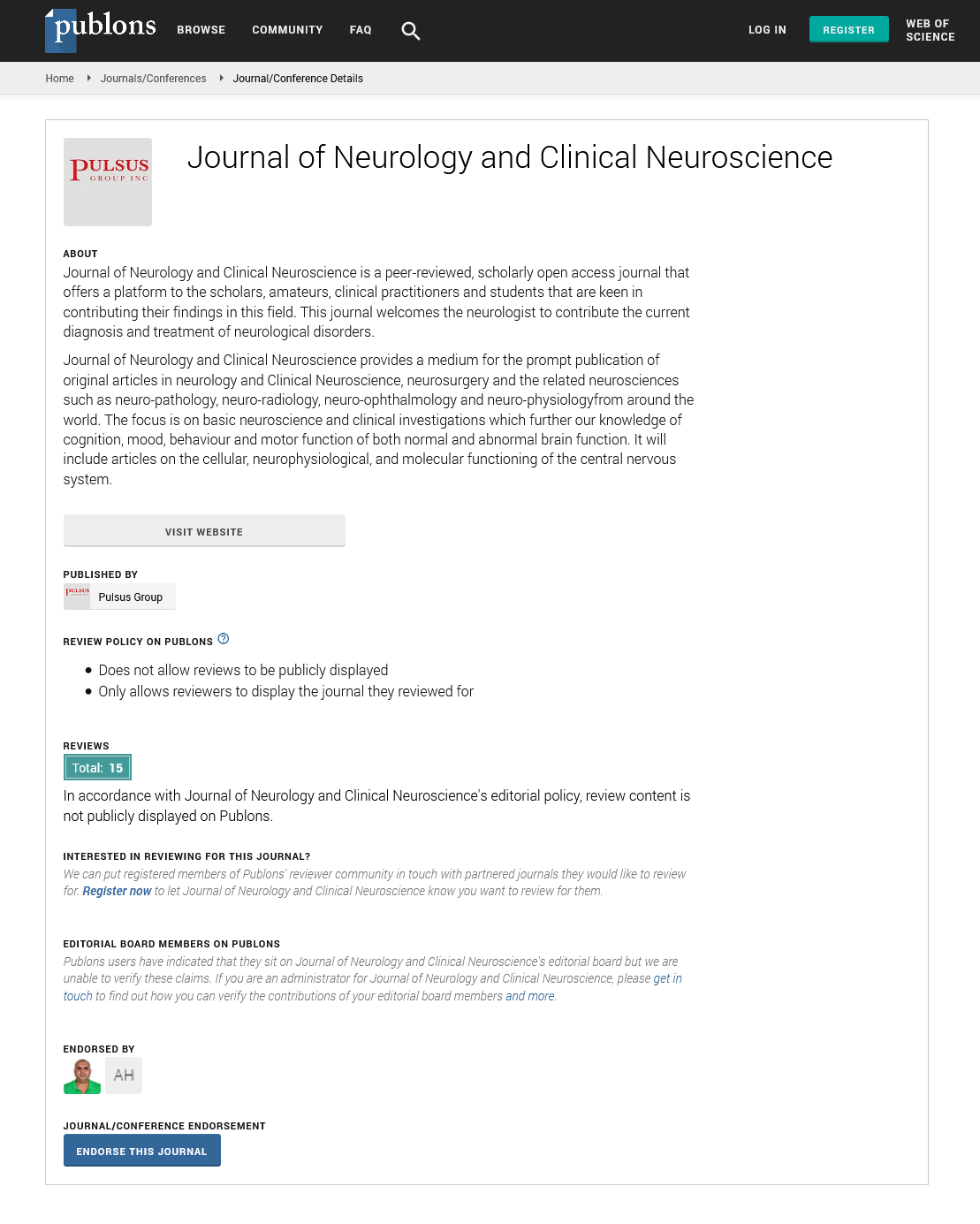Sign up for email alert when new content gets added: Sign up
Decompressive Craniectomy following severe traumatic Brain injury with an initial Glas-gow coma scale score of 3 and 4
Joint Event on 8th International Conference on NEUROLOGICAL DISORDERS, CENTRAL NERVOUS SYSTEM AND STROKE & International Conference on NEUROLOGY AND NEUROSURGERY
December 04-05, Dubai, UAE
Afif Afif
Hospital Center of Sens, France
Posters & Accepted Abstracts: J Neurol Clin Neurosci
Abstract :
Background: Decompressive craniectomy formed as surgical management option for severe traumatic brain injury (TBI). Few studies that follow the TBI patients with a Glasgow coma scale (GCS) score of 3 or 4. Decompressive craniectomy was avoided in these patients due to the poor outcomes and the worse func-tional recovery.
Clinical Presentation: Two patients were presented in our case series. The first one suffered of severe TBI following an aggression with a Glasgow coma scale (GCS) score of 3/15 and bilaterally dilated unreactive pupils. A brain CTscan showed right frontal fracture, bifrontal hematoma contusion, a fronto-temporo-parietal acute subdural hematoma (SDH) with a thickness of 14 mm on the right side, traumatic subarach-noid hemorrhage, with 20 mm of midline shift to the left side, diffuse brain edema. The second one pre-sented with severe TBI following an automobile accident with a GCS score of 4/15 and isoreactive pupils. A brain CT-scan showed bilateral frontotemporal fracture, diffuse brain hematoma contusion, traumatic subarachnoid hemorrhage, right extradural hematoma (EDH) and bilateral fronto-temporo-parietal acute subdural hematoma (SDH) more important in the right side.
Discussion and Conclusion: Our case series suggest that the wide adequate decompressive craniectomy in patients with severe TBI and GCS score of 3 or 4 can be performed and useful to obtain good long-term neurological outcomes with a good functional recovery. The rapidity of the surgical indication decision can be option to obtain the better neurological outcomes.
Biography :
E-mail: afif_acc@hotmail.com





